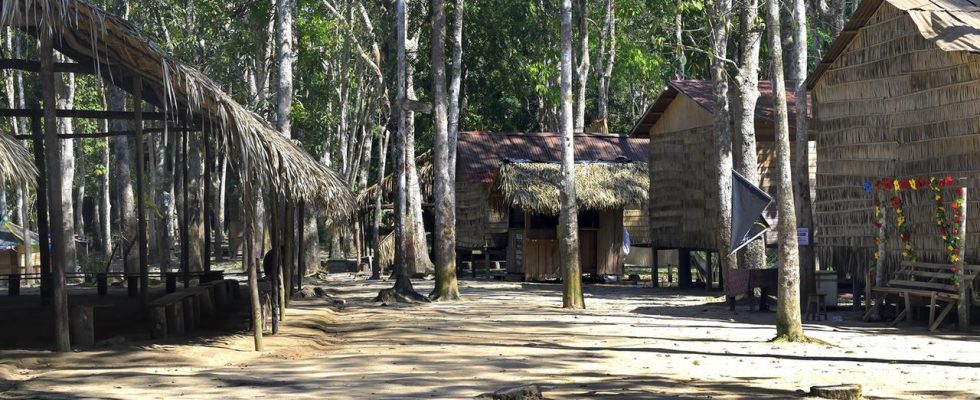The Brazilian parliament has made it much more difficult to designate indigenous protected areas. It overruled a veto by President Lula and thereby confirmed large parts of a controversial law.
Brazil’s Congress has overruled a veto by President Luiz Inácio Lula da Silva to reinstate a law repealing protections for indigenous peoples’ land rights. In October, Lula da Silva vetoed key passages of the law passed by Congress that threatened indigenous people’s land rights. Representatives and senators voted again for the law with a clear majority. This meant that supporters of former President Jair Bolsonaro and his allies in the powerful agricultural industry prevailed.
Now only land that was inhabited by indigenous peoples on the day the constitution was promulgated on October 5, 1988 can be designated as a protected area. Critics complain that this would no longer allow indigenous people to get back tribal areas from which they had already been expelled.
Protected areas may not be expanded
The new law also stipulates that existing protected areas may not be expanded. In addition, invaders who need to return indigenous lands can now claim compensation. However, legal disputes over the new law are likely to continue.
Since taking office in January, the left-wing Lula da Silva has paid significantly more attention to demands from indigenous peoples than his right-wing predecessor Bolsonaro. But without a majority in Congress, he is exposed to strong pressure from conservative lawmakers who oppose his environmental agenda. They are supported by the powerful agricultural industry.
Indigenous umbrella organization wants to sue
The Supreme Court had already declared the underlying concept of time limits on indigenous claims unconstitutional. The indigenous umbrella organization Apib announced that it would go to the Supreme Court again.
The Minister for Indigenous Peoples, Sônia Guajajara, also criticized Parliament’s decision. “Indigenous peoples’ history is one of resistance. Today we didn’t get the result we wanted in Congress, but don’t think that means we end the day defeated,” she wrote on X, formerly Twitter.
Key role in the fight against deforestation
Indigenous peoples can play a key role in the fight against deforestation and climate change. Where indigenous communities have guaranteed rights, significantly less land is deforested than in other areas. This emerges from a study by the Food and Agriculture Organization (FAO) and the Fund for the Development of Indigenous Peoples in Latin America and the Caribbean (Filac).
More than 300 indigenous peoples with a total of 1.6 million people live in Brazil.

